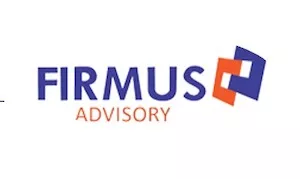- within Immigration topic(s)
- within Immigration topic(s)
- with readers working within the Chemicals industries
- within Immigration, Finance and Banking and Energy and Natural Resources topic(s)
A foreigner who decides to reside and work in Côte d'Ivoire legally requires a work visa and a residence card must meet administrative formalities that the local authorities must approve. Since April 21, 1997, any employment contract involving a foreign/non-Ivoirian employee must be endorsed by the relevant authorities, particularly the Youth Employment Agency (AGEPE). The purpose of this work visa is to ensure that the labor market is open to foreigners on the one hand, yet priority is given to national employment on the other hand.
Prerequisites for working in Ivory Coast
To lawfully employ a non-Ivorian worker, several prerequisites must be met:
- Residence and Work visa: The individual must have a valid residence card that grants them the right to work.
- Pre-Employment Contract: The employment contract must be secured before the residence process begins.
- Labor Market Consideration: The vacancy must reflect a genuine need for skills not readily available within the local labor pool.
- Contract Nature: Preference is given to roles requiring high-level technical expertise.
- Security Deposit: Employers may be required to lodge a deposit equivalent to up to one year's salary.
- Visa and Permit Fees: Applicable processing fees must be paid.
Legal Framework for Work Visa in Ivory Coast
There is a legal provision under Decree No. 96-287 of April 03, 1996, and Order No. 6421 of June 15, 2004, which allows for the granting of Work Visa for foreigners in Ivory Coast.
In line with the law, there has to be a period of one (1) month where a job offer is first advertised to Ivoirians (locals) to apply for that job. At the end of the of the one month, the employer is then authorized, if the position is not filled by a national, to use a non-national worker. But prior to his hiring, the non-national worker must hold a contract or letter of employment from the employer.
In applying for work visa, there are fixed fees to be borne by the employer and these fees are paid annually, regardless of the nature of the contract.
Consequences of Non-Compliance with this Regulation
The employer who recruits a non-Ivorian worker without following the proper legal provisions, is in violation of the legal order, order 6421 Act.9; as a sanction, the employer will pay three months' salary of the employee concerned per year of offence in addition to the payment of work visa fee.
On behalf of the state, the Youth Employment Agency, is now the Agency that manages the legal framework and ensures compliance with the provisions relating to the work visa for employment contracts of non-nationals and the issuance of approvals to private employment firms.
Conditions for Employment
Employers must adhere to specific steps before hiring a non-national:
- Declaration of Vacancy: Job openings must be declared to the Public Employment Agency (AGEPE).
- Job Publication: Vacancies must be advertised in a widely circulated national newspaper for a period of one month.
- Local Recruitment Priority: If the position remains unfilled by a national after this period, the employer may hire a foreign national.
- Employment Contract Approval: Prior to employment, a contract or job offer must be approved by AGEPE using the official format.
- Work visa Application: Within three months of hiring, the worker must obtain a work card issued by the competent administrative body (Youth Employment Agency/Agence Emploi Jeunes (AGEPE).
Types of Work Visas and Procedures
Work visas are issued according to the type of contract that an employee has from their employer. There are two main categories.
- Fixed-Term Contract (CDD): Eligible for a work visa valid for up to 24 months.
- Permanent Contract (CDI): Qualify for a long-term work visa.
Once hired, the foreign worker has three months to obtain a work visa from the Youth Employment Agency.
Required Documents for Applying for Work Visas
- Four copies of the employment contract
- Diplomas, certificates, and CV
- Criminal record
- Medical examination certificate from a reputable hospital in Côte d'Ivoire
- A proof of salary or a pay slip (for those who are already in activity)
- Formal request and endorsed contract
- Residence card
- Two passport photos
For S.A (Public Limited Company), the CEO, Director General/Managing Director, and Deputy Managing Director, it is necessary to add to the files a document certifying their appointment to this position.
For SARL (statutory managers) and others, the following documents must be added according to the type of company.
- The Statutes
- The tax declaration of existence (DFE) and the commercial register.
- Application form for a non-Ivoirian card and documents to be attached. A card application to be collected at the Agency (at the visa service; digital version available)
- Two color passport photos of the same print run
- A sum of five thousand (5,000 FCFA) to be paid at the Agency's headquarters to the accounting department.
Cost of Work Visa in Ivory Coast
The fees for work visa vary based on the nationality:
To view the article in full click here
The content of this article is intended to provide a general guide to the subject matter. Specialist advice should be sought about your specific circumstances.


